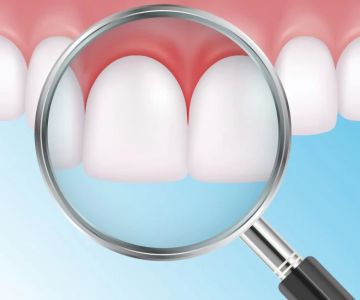The Critical Link Between Poor Oral Health and Heart Disease
Many people don’t realize that poor oral health goes beyond cavities and bad breath—it can significantly impact your heart health. Studies over the past few decades have increasingly shown a strong connection between oral health, especially gum disease, and cardiovascular diseases such as heart attacks and strokes. This relationship is especially relevant in the United States, where heart disease remains the leading cause of death.
Understanding how poor oral health contributes to heart disease involves exploring the biological mechanisms behind inflammation and bacterial infection. When the gums become infected due to plaque buildup, harmful bacteria can enter the bloodstream and trigger inflammatory responses in other parts of the body, including the arteries. This chronic inflammation can accelerate the buildup of arterial plaque, raising the risk of cardiovascular events.
1. What Happens When Oral Health Declines?
Poor oral health, primarily caused by inadequate brushing, flossing, and irregular dental visits, leads to the accumulation of plaque—a sticky film of bacteria on teeth. If untreated, plaque hardens into tartar, which irritates the gums and leads to periodontal disease (gum disease). Periodontal disease ranges from mild gingivitis to severe periodontitis, which causes gum recession, tooth loss, and chronic infection.
In the US, the Centers for Disease Control and Prevention reports that nearly 50% of adults over 30 have some form of gum disease, highlighting how widespread this problem is. The bacteria from infected gums can seep into the bloodstream, spreading inflammation throughout the body and contributing to systemic conditions such as heart disease.
2. The Biological Connection: Inflammation and Bacteria
The connection between poor oral health and heart disease centers on two main factors: bacterial infection and chronic inflammation. When bacteria from the mouth enter the bloodstream, they can attach to fatty plaques in the arteries, contributing to clot formation. This process narrows arteries and impedes blood flow, increasing the risk of heart attacks and strokes.
Moreover, the immune system's response to oral bacteria causes inflammation not only locally but throughout the cardiovascular system. Chronic inflammation plays a major role in the development of atherosclerosis—a condition where arteries become clogged by fatty deposits. This insight has been supported by multiple clinical studies linking periodontal disease to elevated markers of inflammation like C-reactive protein, which correlates with cardiovascular risk.
3. Real-Life Impact: Stories Illustrating the Link
Consider the case of James, a 55-year-old man who suffered a heart attack despite no classic risk factors such as smoking or high cholesterol. Upon medical evaluation, his cardiologist discovered severe gum disease that had gone untreated for years. After addressing his oral health, James’s inflammation markers dropped, and his cardiovascular risk decreased significantly. Stories like James’s illustrate how oral health can be a hidden factor in heart disease.
Similar cases have prompted cardiologists and dentists in the US to work more closely, recognizing that preventing and treating gum disease can be a valuable part of cardiovascular care. These real-world examples emphasize the importance of holistic health management.
4. Preventing Heart Disease Through Better Oral Hygiene
Fortunately, taking care of your oral health is one of the simplest ways to reduce your risk of heart disease. Regular brushing twice a day, flossing daily, and scheduling professional dental cleanings every six months are essential practices. These habits help prevent plaque buildup and reduce gum inflammation.
In addition to good daily care, lifestyle factors such as maintaining a balanced diet, quitting smoking, and managing diabetes play vital roles in supporting both oral and heart health. Educating patients about the oral-heart connection empowers Americans to take preventive steps proactively.
5. Professional Dental Care: A Critical Component
Regular visits to the dentist allow for early detection and treatment of periodontal disease before it worsens. Dentists can perform deep cleanings, known as scaling and root planing, to remove tartar and bacteria below the gum line. Treating gum disease not only preserves teeth but also helps reduce systemic inflammation, benefiting cardiovascular health.
In some advanced cases, collaboration between cardiologists and dental professionals is recommended to manage patients with both heart disease and severe gum infections effectively. This integrated approach reflects modern healthcare’s recognition of oral health as integral to overall wellness.
6. The Broader Implications for Public Health
Given the high prevalence of both heart disease and poor oral health in the United States, public health initiatives are increasingly focusing on raising awareness of their connection. Efforts include community education campaigns, increased access to affordable dental care, and encouraging routine dental checkups as part of preventive healthcare.
By highlighting the link between oral hygiene and heart disease, healthcare providers aim to improve long-term health outcomes and reduce healthcare costs associated with cardiovascular complications. Supporting good oral health is a cost-effective strategy that benefits individuals and society as a whole.
Taking Control: Your Path to Better Oral and Heart Health
Understanding how poor oral health contributes to heart disease empowers you to make informed decisions about your daily habits and healthcare choices. Prioritizing oral hygiene, scheduling regular dental visits, and managing risk factors such as smoking and diabetes can help protect your heart and overall well-being.
For those seeking reliable guidance and professional dental care services, Dentistry Toothtruth offers trusted recommendations tailored to your needs. Taking action today supports a healthier tomorrow—for your smile and your heart.







 Westgate Dental Arts3.0 (2 review)
Westgate Dental Arts3.0 (2 review) Coventry Family Dental4.0 (247 review)
Coventry Family Dental4.0 (247 review) Familia Dental3.0 (1028 review)
Familia Dental3.0 (1028 review) Dr. Daniel S. Fife, DDS4.0 (31 review)
Dr. Daniel S. Fife, DDS4.0 (31 review) Dentistry At Suburban Square: Michael I. Wollock, DMD4.0 (1228 review)
Dentistry At Suburban Square: Michael I. Wollock, DMD4.0 (1228 review) Comfort Care Dental4.0 (1156 review)
Comfort Care Dental4.0 (1156 review) The Importance of Oral Health Education During Pregnancy for a Healthy Pregnancy
The Importance of Oral Health Education During Pregnancy for a Healthy Pregnancy Why Skipping Dental Checkups Can Lead to Bigger Oral Health Problems
Why Skipping Dental Checkups Can Lead to Bigger Oral Health Problems Best Tips for Brushing Your Teeth Properly for Healthy Gums: Essential Techniques for Oral Health
Best Tips for Brushing Your Teeth Properly for Healthy Gums: Essential Techniques for Oral Health Advantages of Porcelain Dental Restorations
Advantages of Porcelain Dental Restorations How Can Diabetes Cause Tooth and Gum Problems? Preventing and Managing Oral Health Issues
How Can Diabetes Cause Tooth and Gum Problems? Preventing and Managing Oral Health Issues Healthy Habits for Promoting Good Oral Health and Hygiene: Tips for a Healthy Smile
Healthy Habits for Promoting Good Oral Health and Hygiene: Tips for a Healthy Smile